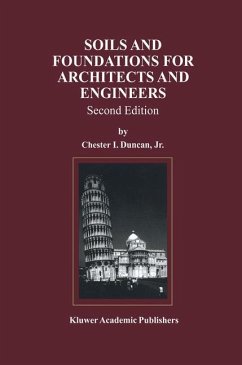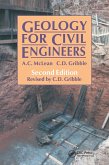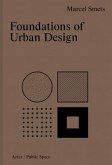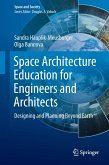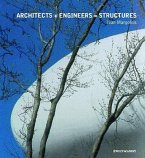Soils and Foundations for Architects and Engineers, Second Edition is a practical guide to the technology of soil mechanics and foundations, and the application of that technology to the design and construction process. This text provides an up-to-date overview of the classification of soils, the design of foundations, and the behavior of soils under load. Particular emphasis has been given to the subject of piles, piers, and caissons, and to the design and details of construction of basement and retaining walls.
New to this edition:
Soils and Foundations for Architects and Engineers, Second Edition can be used in advanced undergraduate and graduate level courses offered in architectural engineering and civil engineering, as well as be used as a reference book by practicing architects, insurance adjusters and attorneys who litigate or adjudicate claims involving soils and foundations.
New to this edition:
- Expanded coverage of shear strength of soils, settlement analysis, and expansive soil.
- Design requirements for prestressed tiebacks, tiedowns, and rock anchors.
- Expansion of information on pile driving techniques including the use of the Engineering News Formula.
- A table of British-metric conversions.
- Many new solved problems and illustrations.
Soils and Foundations for Architects and Engineers, Second Edition can be used in advanced undergraduate and graduate level courses offered in architectural engineering and civil engineering, as well as be used as a reference book by practicing architects, insurance adjusters and attorneys who litigate or adjudicate claims involving soils and foundations.

